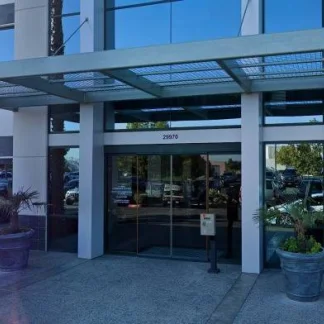MFI Recovery Center - Whitewood Road
MFI Recovery Center offers outpatient treatment for women with alcohol and/or su...
Located in Murrieta, California, Adolescent Academy is an alcohol and drug rehab center that provides inpatient and outpatient addiction treatment services to adolescents. They also accept individuals who have been ordered by the court to receive treatment.
The inpatient program offers 24/7 supervision in a safe and secure environment where teens can receive hands-on care around the clock. The process begins with an assessment to determine the best treatment path for each client. A personalized treatment plan is created that addresses the mental, emotional, and physical aspects of addiction, along with helping individuals overcome unhealthy behaviors. Mental health counseling, process groups, stress reduction and skills-building classes, and educational programming on topics related to issues many teens face, are provided.
The outpatient program allows individuals who have completed the inpatient program to step down the frequency of their treatment while maintaining a connection to mental health professionals. Clients will continue individual counseling and in most cases groups that support them and continual change and healthy habits.
Adolescent Academy accepts most major medical insurance plans, including Beacon, Magellan, Cigna, Blue Cross Blue Shield, Kaiser, United Healthcare, Ambetter, Humana, and more. Out-of-network benefits may vary, so it is important to verify coverage with the provider before starting treatment.
Contact us for more information: (951) 698-7612

Connect with Adolescent Academy by calling their admissions team directly.
(951) 698-7612 Website Get DirectionsEating disorders include anorexia, bulimia, binge eating, and dysfunctional eating patterns. Many psychologists and other mental health professionals consider eating disorders to be food addictions, meaning food is being used in an addictive way (similar to drug or alcohol addiction). Certain substance abuse treatment programs will have treatment for eating disorders as one of the services offered. An eating disorder may also present as a co-occuring disorder or dual diagnosis alongside drug and alcohol addiction.
Experiential therapy is a form of therapy in which clients are encouraged to surface and work through subconscious issues by engaging in real-time experiences. Experiential therapy departs from traditional talk therapy by involving the body, and having clients engage in activities, movements, and physical and emotional expression. This can involve role-play or using props (which can include other people). Experiential therapy can help people process trauma, memories, and emotion quickly, deeply, and in a lasting fashion, leading to substantial and impactful healing.
Life skills trainings involve all the skills a person must have in order to function successfully in the world. These include time management, career guidance, money management, and effective communication. Truly successful addiction recovery is based on the ability to not only live substance-free, but to thrive. Life skills teaches the practical necessities of functioning in society, which sets clients up for success in life, and therefore sobriety.
Nutrition therapy, aka medical nutrition therapy (MNT), is a way of treating physical, emotional, and medical conditions through diet. Specific dietary plans are designed by professional nutritionists or registered dietitians, and patients follow them in order to positively affect their physical and mental health.
Experiential therapy is a form of therapy in which clients are encouraged to surface and work through subconscious issues by engaging in real-time experiences. Experiential therapy departs from traditional talk therapy by involving the body, and having clients engage in activities, movements, and physical and emotional expression. This can involve role-play or using props (which can include other people). Experiential therapy can help people process trauma, memories, and emotion quickly, deeply, and in a lasting fashion, leading to substantial and impactful healing.
Life skills trainings involve all the skills a person must have in order to function successfully in the world. These include time management, career guidance, money management, and effective communication. Truly successful addiction recovery is based on the ability to not only live substance-free, but to thrive. Life skills teaches the practical necessities of functioning in society, which sets clients up for success in life, and therefore sobriety.
Nutrition therapy, aka medical nutrition therapy (MNT), is a way of treating physical, emotional, and medical conditions through diet. Specific dietary plans are designed by professional nutritionists or registered dietitians, and patients follow them in order to positively affect their physical and mental health.
Life skills trainings involve all the skills a person must have in order to function successfully in the world. These include time management, career guidance, money management, and effective communication. Truly successful addiction recovery is based on the ability to not only live substance-free, but to thrive. Life skills teaches the practical necessities of functioning in society, which sets clients up for success in life, and therefore sobriety.
Nutrition therapy, aka medical nutrition therapy (MNT), is a way of treating physical, emotional, and medical conditions through diet. Specific dietary plans are designed by professional nutritionists or registered dietitians, and patients follow them in order to positively affect their physical and mental health.
Nutrition therapy, aka medical nutrition therapy (MNT), is a way of treating physical, emotional, and medical conditions through diet. Specific dietary plans are designed by professional nutritionists or registered dietitians, and patients follow them in order to positively affect their physical and mental health.
MFI Recovery Center offers outpatient treatment for women with alcohol and/or su...
MFI Recovery Center Whitewood Road is located in Murrieta, California. They prov...
Forterus Treatment Center is a private rehab located in Murrieta, California. Fo...
A Better Tomorrow, located in Murrieta, California, is an alcohol and drug rehab...